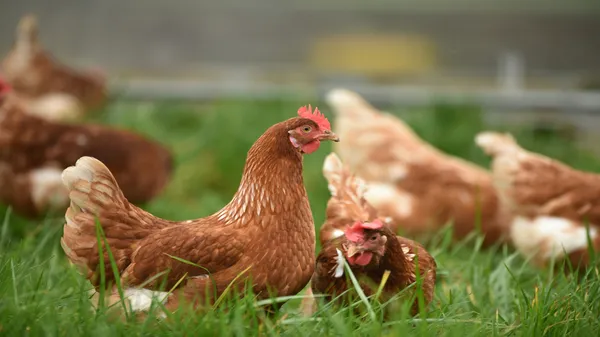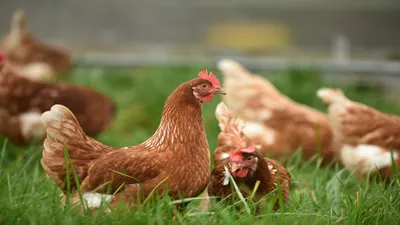Starting a poultry farm can be one of the most exciting and rewarding ventures in India. With growing consumer demand for quality eggs and meat, launching a poultry business not only promises attractive profits but also contributes to local food security. In this comprehensive guide, we’ll walk you through every step of setting up a poultry farm business. From preparing a robust business plan and understanding market trends to ensuring legal compliance and managing day-to-day operations, this article covers the essentials that every aspiring poultry entrepreneur should know.
Why Consider a Poultry Business in India?
India’s poultry sector has experienced significant growth over the past decade. As income levels rise and consumer preferences evolve, the demand for free-range eggs, protein-rich chicken meat, and even organic poultry products has soared. Here are a few reasons why starting a poultry business could be a smart move:
- High Market Demand: Poultry products continue to be a staple in most diets. With an increasing preference for protein-rich foods, eggs and chicken meat see consistent demand.
- Quick Return on Investment: Poultry farming typically offers a relatively fast breakeven point and good profit margins if managed effectively.
- Scalability: Whether you start small with a backyard farm or plan a larger commercial operation, poultry farming is highly scalable depending on your financial goals and market reach.
- Job Creation: This sector not only creates employment opportunities locally but also boosts rural development.
- Diverse Product Offerings: With opportunities in egg production, broiler farming, and even organic poultry, owners can diversify their product lines to cater to different market segments.
Creating a Solid Business Plan
A detailed business plan is the foundation of any successful venture. It not only serves as a roadmap for your poultry business but also helps when seeking funding or partnerships. Here’s what you need to include:
Market Analysis and Feasibility Study
Start with extensive research about your target market and local competition:- Understanding Local Demand: Identify the demand for eggs, broiler chicken, and layer products in your area. Is there a niche market for organically raised poultry?- Competitive Landscape: Analyze existing poultry farms near you. What services do they offer, and how can you differentiate your business?- Pricing Trends: Evaluate current market prices to forecast potential revenue and profit margins.
Business Structure and Objectives
Define your business model and long-term goals:- Type of Poultry Farming: Decide whether you want to focus on broiler production, layers (egg-laying chickens), or a mix of both.- Vision and Mission: State your business objectives clearly. For example, “To supply high-quality, hygienically raised eggs and chicken meat while ensuring sustainable agriculture practices.”- Target Market: Identify your ideal customers such as local retailers, supermarkets, restaurants, or direct consumers.
Financial Projections and Funding
Lay out a lowdown of costs and expected revenues:- Investment Requirements: List down expenses like land, building poultry houses, purchasing chicks, feed, equipment, and labor costs.- Revenue Streams: Project income from selling eggs, meat, or even value-added products like processed poultry items.- Profit Forecast: Estimate the break-even point and outline expected profit margins over the next few years.- Funding Sources: Consider personal savings, loans, or government subsidies. Many states in India offer support schemes for agribusiness and poultry farmers.
Setting Up Your Poultry Farm
Once your plan is in place, it’s time to set up operations. The initial stages are critical, and careful planning can lead to smoother day-to-day operations.
Selecting a Suitable Location
Choosing the right site is essential for a successful poultry business:- Accessibility: Ensure that the location has good transportation links for supply deliveries and product distribution.- Environmental Conditions: An area with proper ventilation and controlled climate conditions will minimize stress on your birds and lower disease risk.- Zoning Regulations: Verify with local authorities that the location complies with regulations for agricultural and poultry operations.
Building Infrastructure and Procuring Equipment
Develop a layout that encourages healthy poultry management:- Poultry Houses: Design houses with adequate space, lighting, and ventilation. Consider insulation and cooling systems to protect birds from extreme weather.- Feeding and Watering Systems: Modern automated systems ensure that chickens get consistent nutrition and hydration.- Waste Management: Install proper waste disposal systems like composting units to maintain hygiene and safety.- Biosecurity Measures: Set up sanitization stations and restrict outsiders’ access to prevent disease outbreaks.
Sourcing Quality Chicks and Feed
Your flock's success begins with quality stock and nutrition:- Selecting Breeds: Depending on your focus (broiler vs. layer), choose breeds that are proven to perform well under local conditions.- Reliable Suppliers: Find reputable hatcheries and feed suppliers who adhere to high standards of animal health and quality control.- Nutritional Balance: Ensure your feeding regimen includes a balanced diet of proteins, carbohydrates, and essential vitamins to maximize growth and egg production.
Managing Day-to-Day Operations
Running a poultry farm involves careful monitoring and active management. Knowing some key operational practices can ensure smoother functioning on your farm.
Health Management and Biosecurity
Disease prevention is paramount in poultry farming:- Vaccination Programs: Implement a regular vaccination cycle to protect your birds from common poultry diseases.- Routine Health Checks: Daily inspections, along with regular veterinary checkups, help detect issues early on.- Strict Biosecurity: Limit visitor access, disinfect equipment regularly, and maintain clean environments to minimize disease risk.
Efficient Feeding and Watering
Maintain optimum production through good nutrition:- Automated Feeders: Use automated systems to distribute feed evenly and minimize wastage.- Regular Water Checks: Ensure a continuous supply of clean water. Maintain water lines and check for leaks or contamination.- Monitoring Intake: Regularly observe your birds’ eating habits to ensure they are receiving the appropriate amount of feed.
Record Keeping and Financial Management
Keep meticulous records to track your farm’s performance:- Production Logs: Record egg count, weight gain in broilers, and overall flock health.- Expense Tracking: Track input costs such as feed, healthcare, labor, and utilities.- Sales and Inventory: Maintain updated records on product sales and stock to plan future purchases and investments.- Regular Audits: Conduct monthly or quarterly reviews of your finances to ensure that your business remains profitable.
Marketing Your Poultry Business
Having a sound product is only half the battle—the other half is making sure customers know about it.
Build a Local Presence
Form a strong connection with your local community:- Direct Sales: Offer your poultry products directly to local retailers, restaurants, or at farmers’ markets.- Partnerships: Establish relationships with local supermarkets and food outlets that can provide regular orders.- Local Branding: Create a brand identity that emphasizes quality, freshness, and transparency. Use simple logos and consistent messaging that resonates with local consumers.
Leveraging Digital Marketing
Expand your market reach using online strategies:- Website and Social Media: Build a professional website and active social media pages to showcase your products. Share pictures of your farm, behind-the-scenes operations, and special offers.- Customer Testimonials: Feature positive reviews and success stories from satisfied local customers.- Online Advertising: Consider using geo-targeted ads on social platforms to reach potential customers and build awareness.
Overcoming Challenges in Poultry Farming
Like any business, poultry farming includes its unique hurdles, but anticipation and preparedness can alleviate many common challenges.
Managing Disease Outbreaks
Disease can decimate production if not controlled promptly:- Emergency Protocols: Develop clear action plans for quarantining and treating birds if infection is detected.- Insurance Coverage: Consider avian disease insurance to provide extra financial security in the event of an outbreak.
Fluctuations in Feed Prices
Feed represents a major cost for poultry farmers, and price fluctuations can impact profit margins:- Bulk Buying: Negotiating long-term contracts or bulk purchases can help lower costs.- Alternate Feed Sources: Explore alternative, locally available feed options while ensuring they meet nutritional standards.
Balancing Production and Sustainability
Sustainability efforts are becoming increasingly important:- Eco-Friendly Practices: Adopt waste recycling practices like using poultry manure as organic fertilizer.- Renewable Energy: Consider utilizing solar power for portions of your operation to reduce energy expenses and carbon footprint.
Success Stories: Real-life Examples from the Field
Many successful poultry farmers began with modest farms and scaled their operations using the strategies outlined above. For example, Ramesh from Uttar Pradesh started with a 500-bird operation. Through careful planning, excellent biosecurity practices, and effective marketing to local retailers, he expanded his business to supply organic eggs across multiple districts. Another inspiring story is of a small startup in Tamil Nadu that utilized digital marketing to reach urban customers and now sells value-added products like free-range organic chicken—a market niche that continues to grow.
Final Thoughts: Taking the First Step Towards a Prosperous Future
Launching a poultry business in India requires a combination of careful planning, dedicated hard work, and continuous learning. With a strong business plan, investment in proper infrastructure, and a focus on customer satisfaction and sustainability, your poultry farm can yield impressive returns and contribute significantly to the local economy.
Remember, the journey begins with a single step. Whether you are a seasoned entrepreneur or a first-time business owner, start small, plan meticulously, and expand gradually as you learn the ins and outs of the industry. With determination, adaptability, and a commitment to quality, you can build a thriving poultry business that stands out in today’s competitive market.
Embrace modern digital tools for marketing, record keeping, and operational management to optimize efficiency. By combining traditional farming practices with innovative strategies, you’ll be well on your way to success.
Now is the time to transform your passion for poultry into a profitable business venture. Take the plunge into the world of poultry farming and watch your hard work grow into a sustainable, rewarding enterprise.
Happy farming, and here’s to a bright future filled with healthy flocks, satisfied customers, and thriving profits!




.webp)

.webp)



.webp)
.webp)
.webp)
.png)